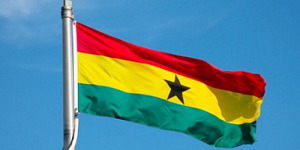Ghana's central bank left its monetary policy rate steady at 14.50 percent due to elevated risks to inflation after an exaggerated rise in food prices following two episodes of panic buying of food before fumigation of markets across the country and the partial lockdown in the two largest cities.
The Bank of Ghana (BOG), which cut its policy rate by 150 basis points in March and the primary reserve requirement, said the combination of the COVID-19 pandemic, which has reduced economic growth, and petroleum revenue shortfalls from lower oil prices had put a severe strain on the government's budget and the current conditions in domestic debt markets would not allow financing of the gap without significantly raising interest rates.
Under the bank's emergency financing provisions, which permits it to increase the limit of purchases of government securities, BOG said it had purchased the government's COVID-19 relief bond with a face value of 5.5 billion cedi at the monetary policy rate with a 10-year tenor and a 2-year moratorium of principal and interest.
BOG added it was ready to continue with its asset purchase program up to 10 billion cedi in line with the current estimates of the financing gap from the pandemic.
In addition, BOG said it would lower the primary reserve ratio for savings and loan companies, and rural and community banks to 6 percent from 8 percent and the reserve ratio for micro finance companies to 8 percent from 10 percent, helping release liquidity to the SDI sector, or the specialized deposit-taking institutions which provides financing to small households and businesses.
Ghana's inflation rate jumped to 10.6 percent in April from 7.8 percent in March, beyond BOG's inflation target band, as food and non-alcoholic beverages rose to 14.4 percent while non-food inflation rose to 7.7 percent.
But BOG, which targets inflation at a midpoint of 8.0 percent within a range of plus/minus 2 percentage points, said it expects this rise in inflation peak in the second quarter and then return to the disinflation path in following quarters, settling within its target range by the end of the year.
"On the growth outlook, baseline projections show a sharp downturn in GDP growth with the economy operating below capacity in the medium-term," BOG said.














































